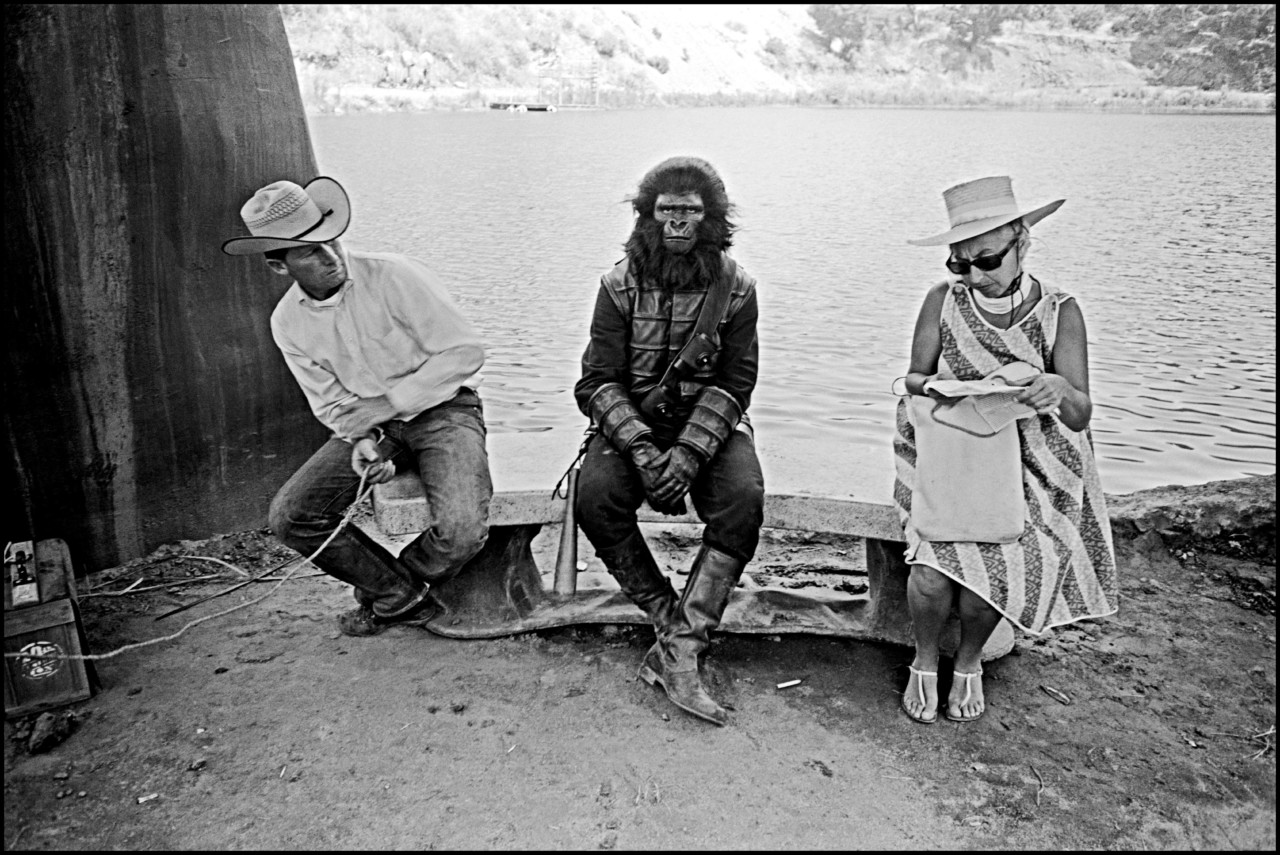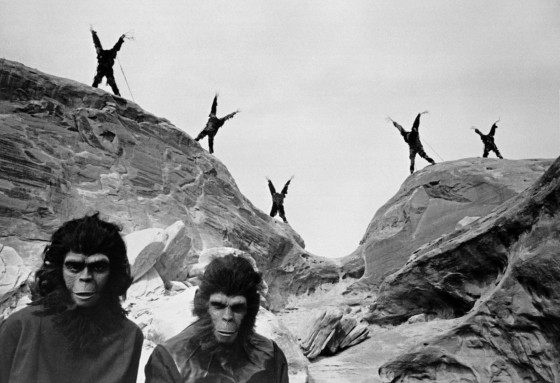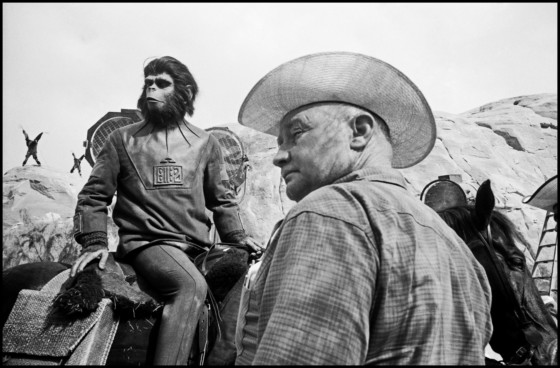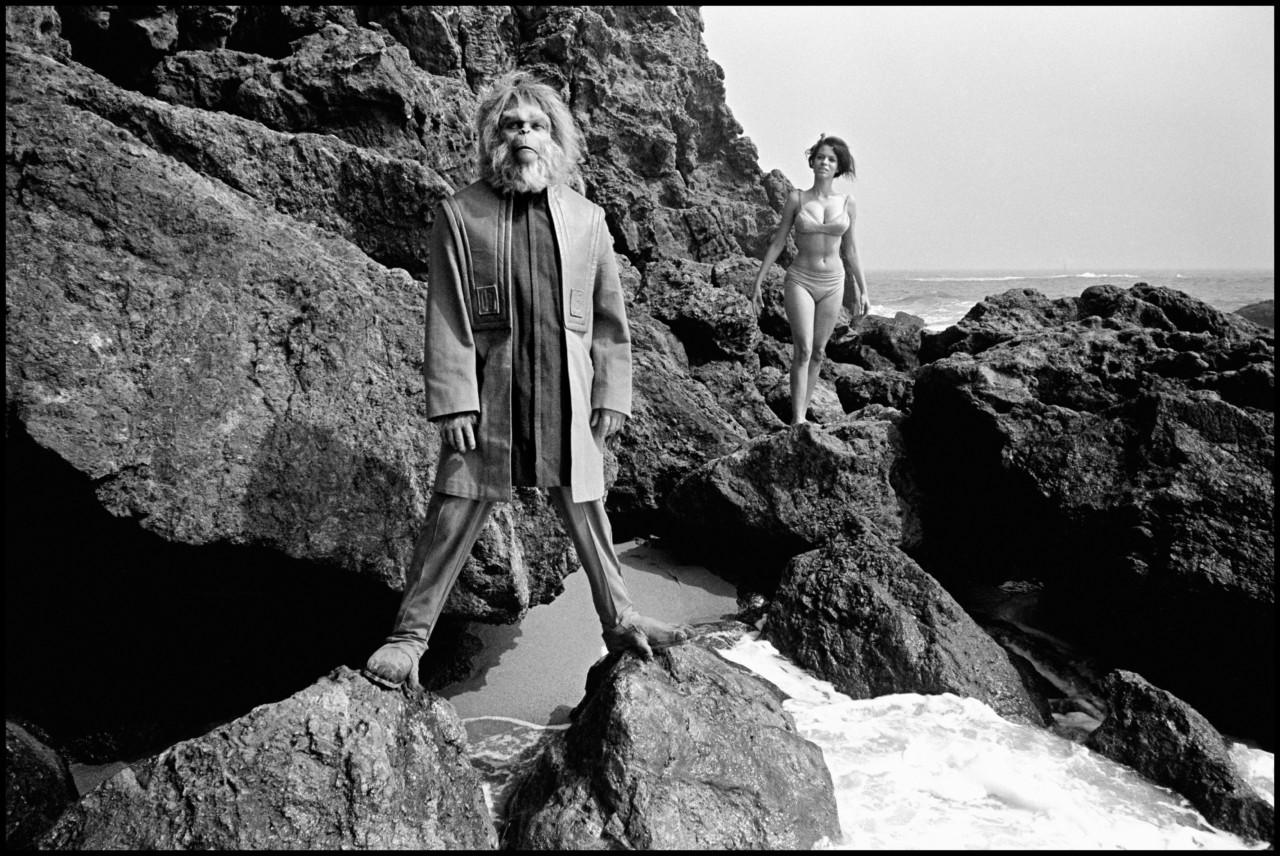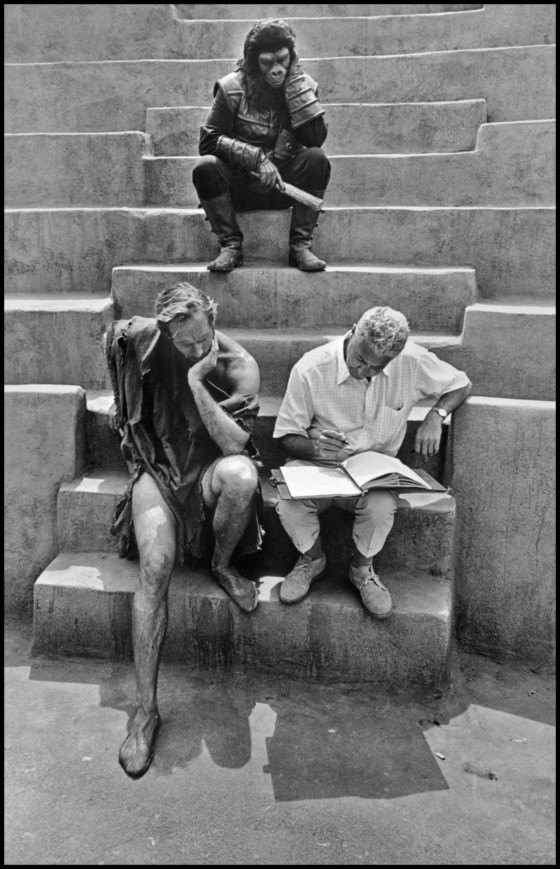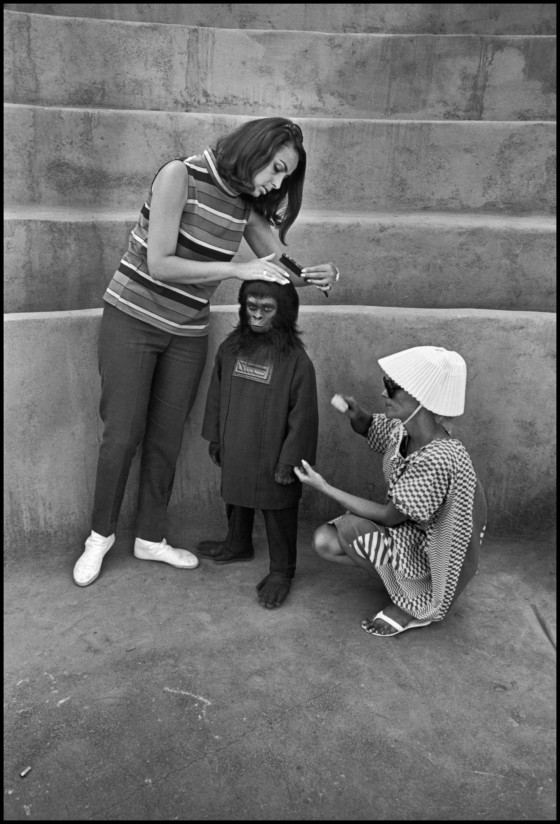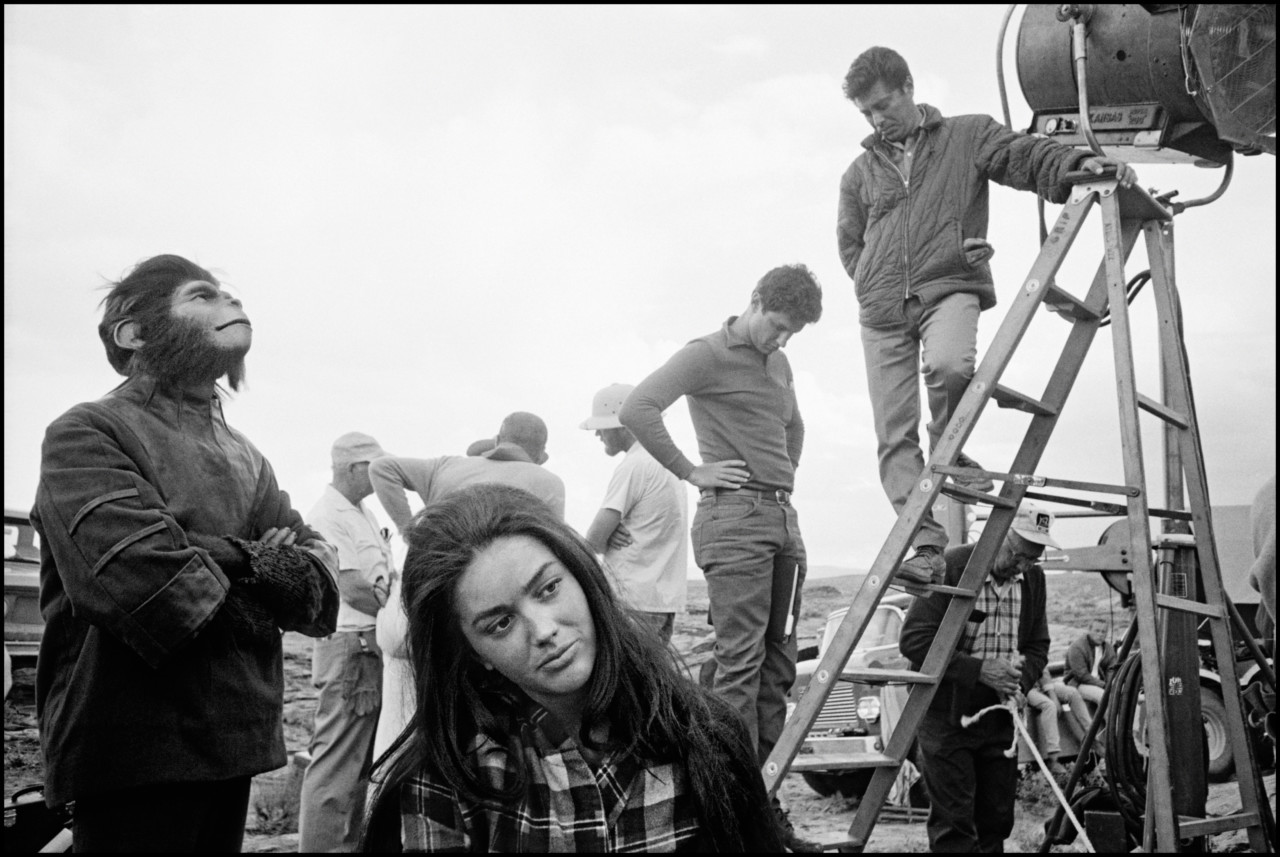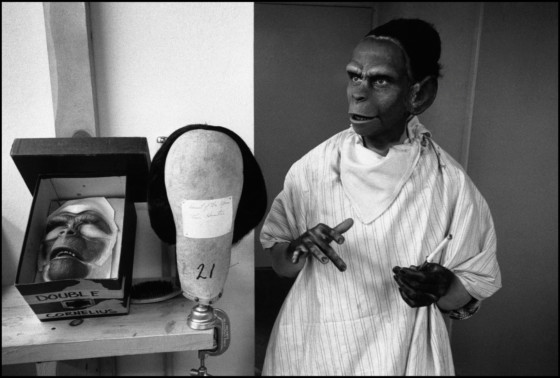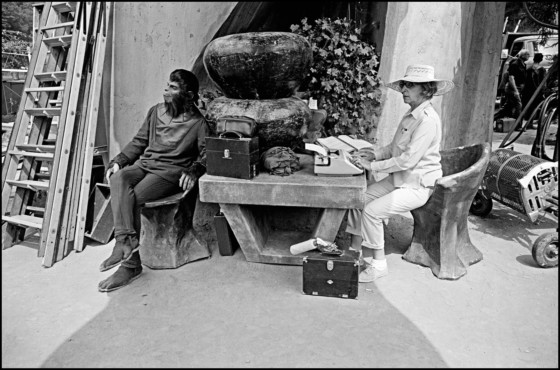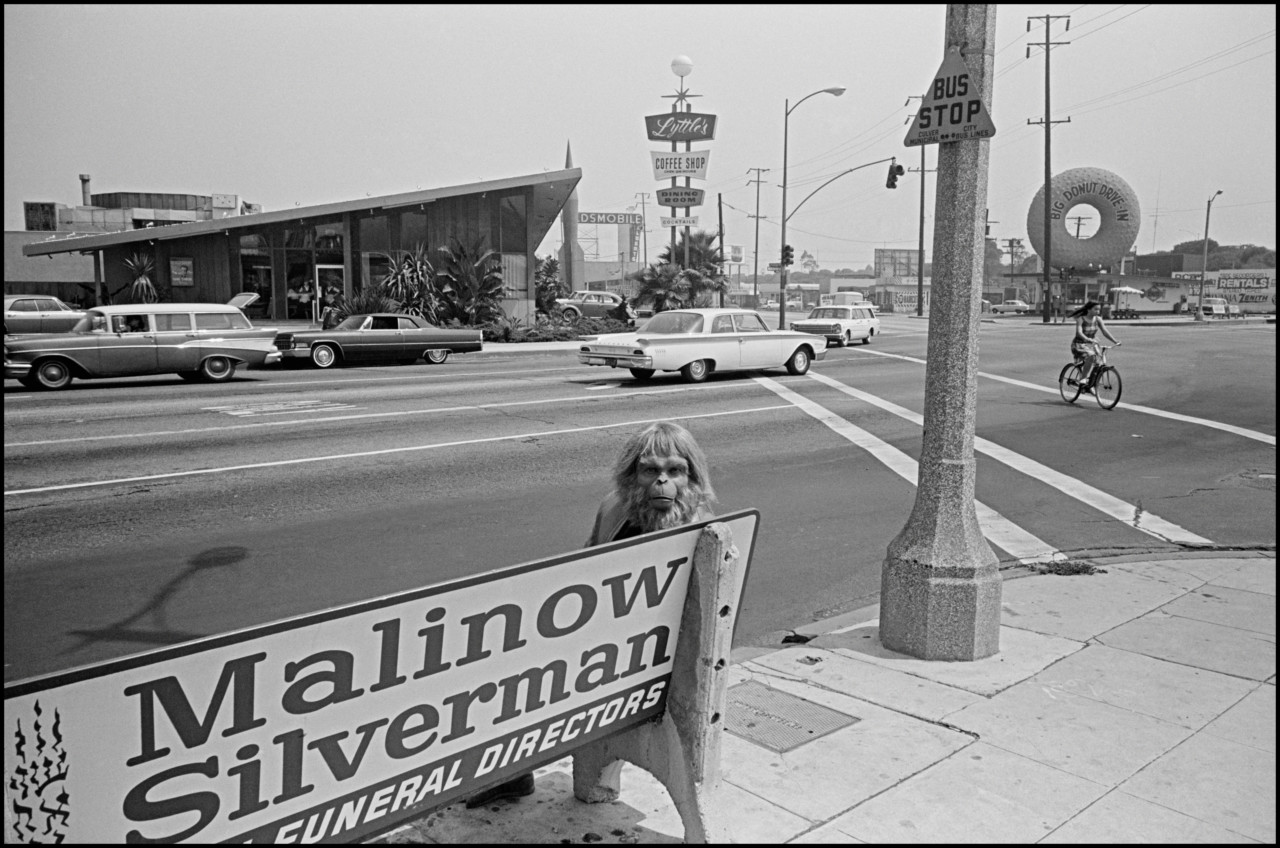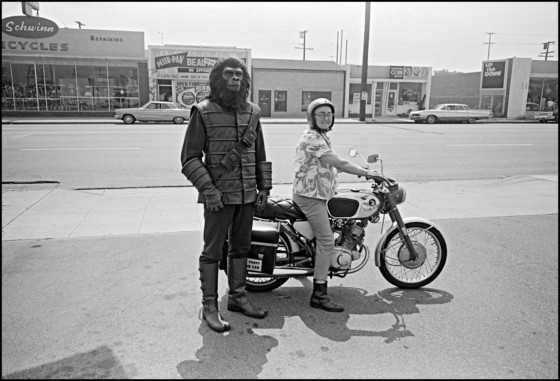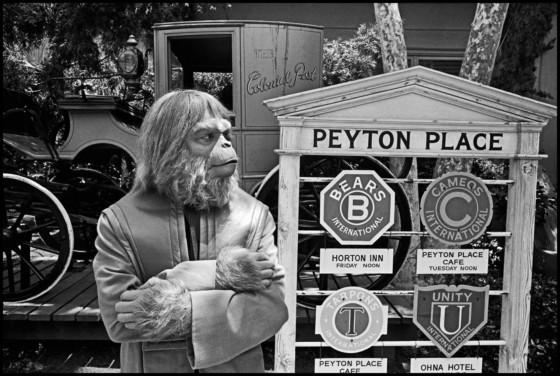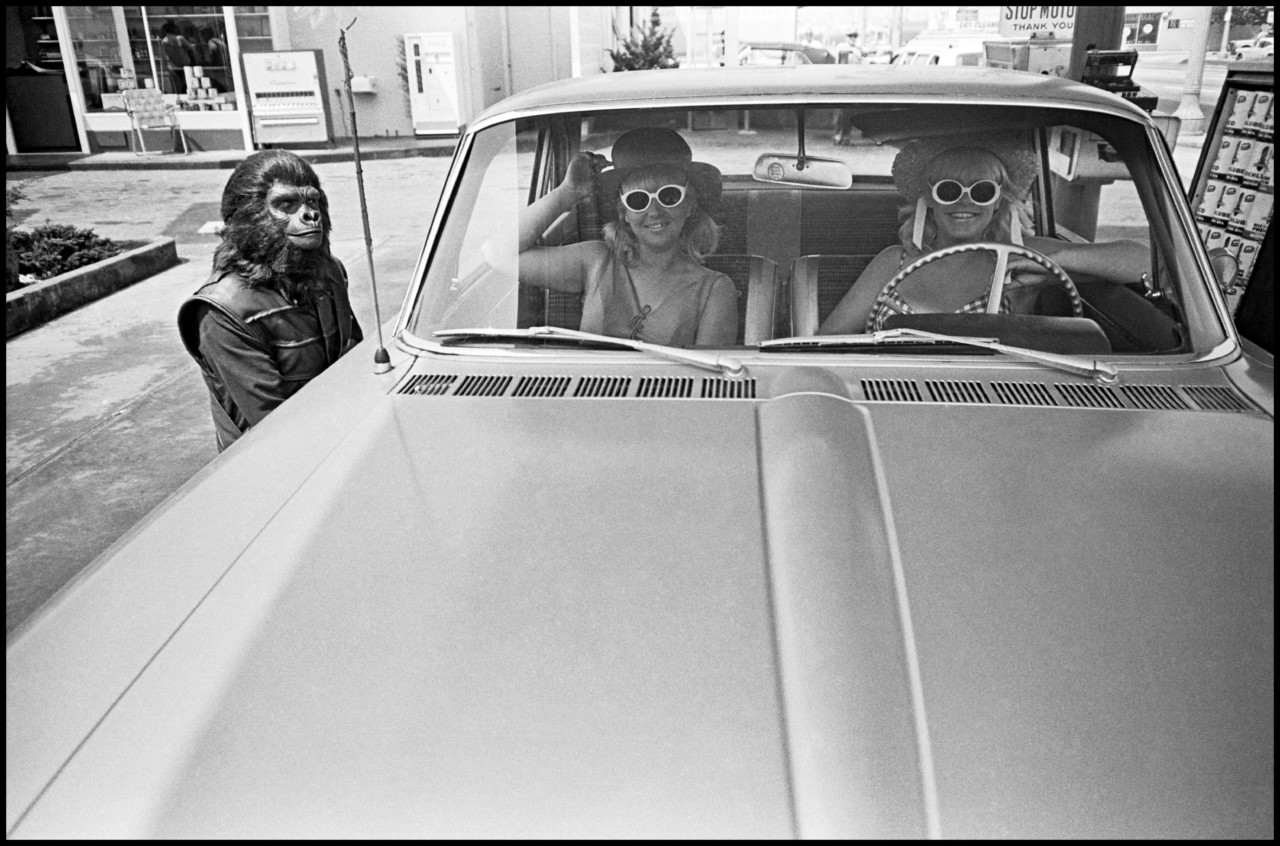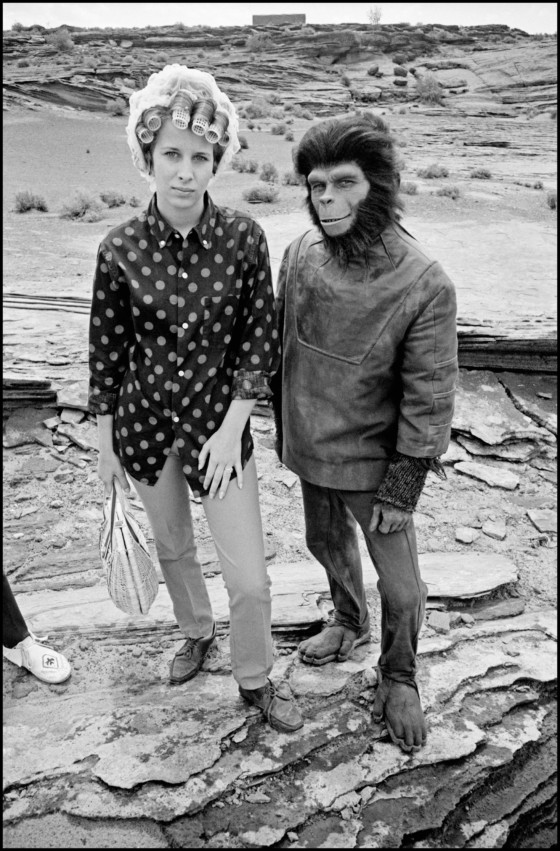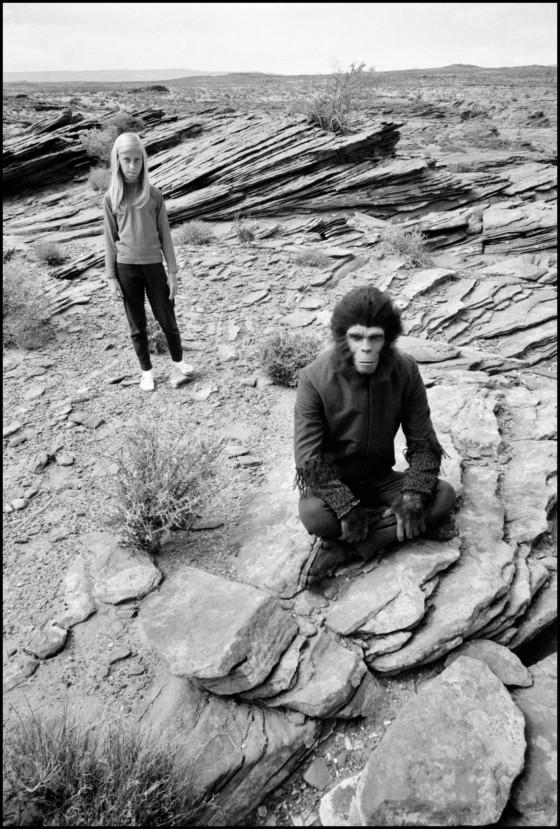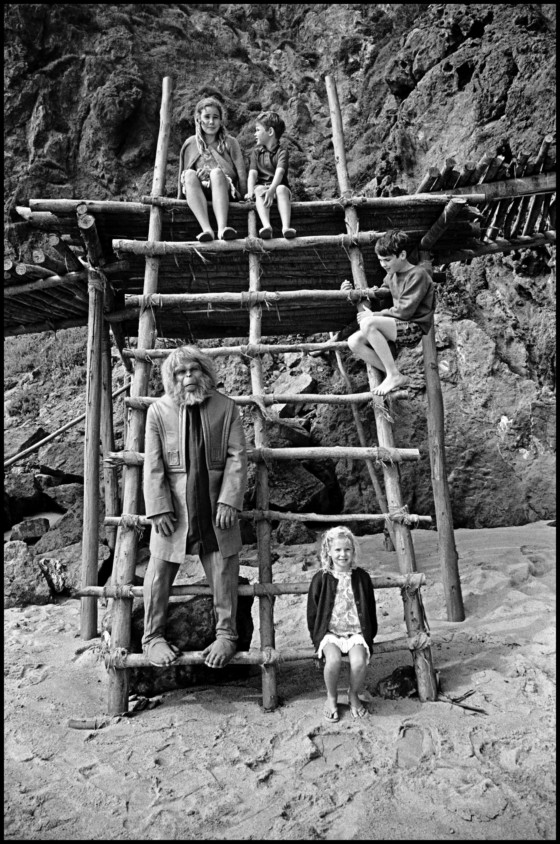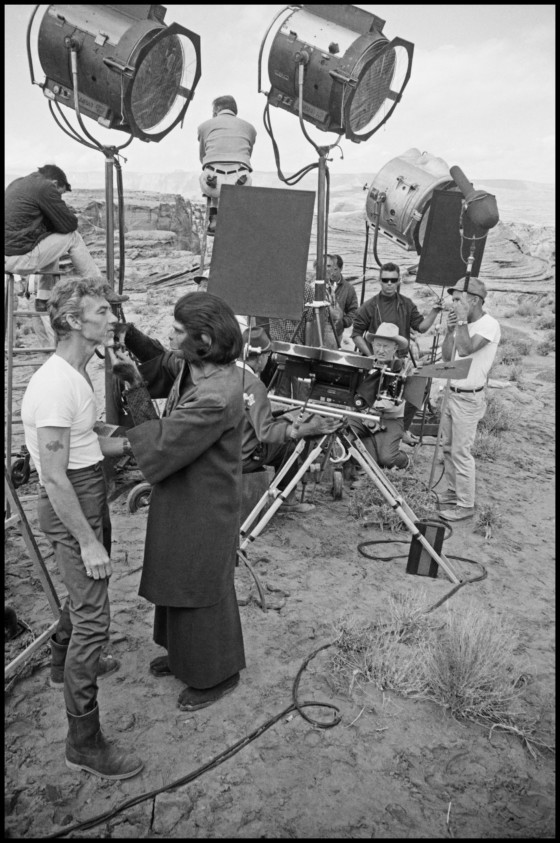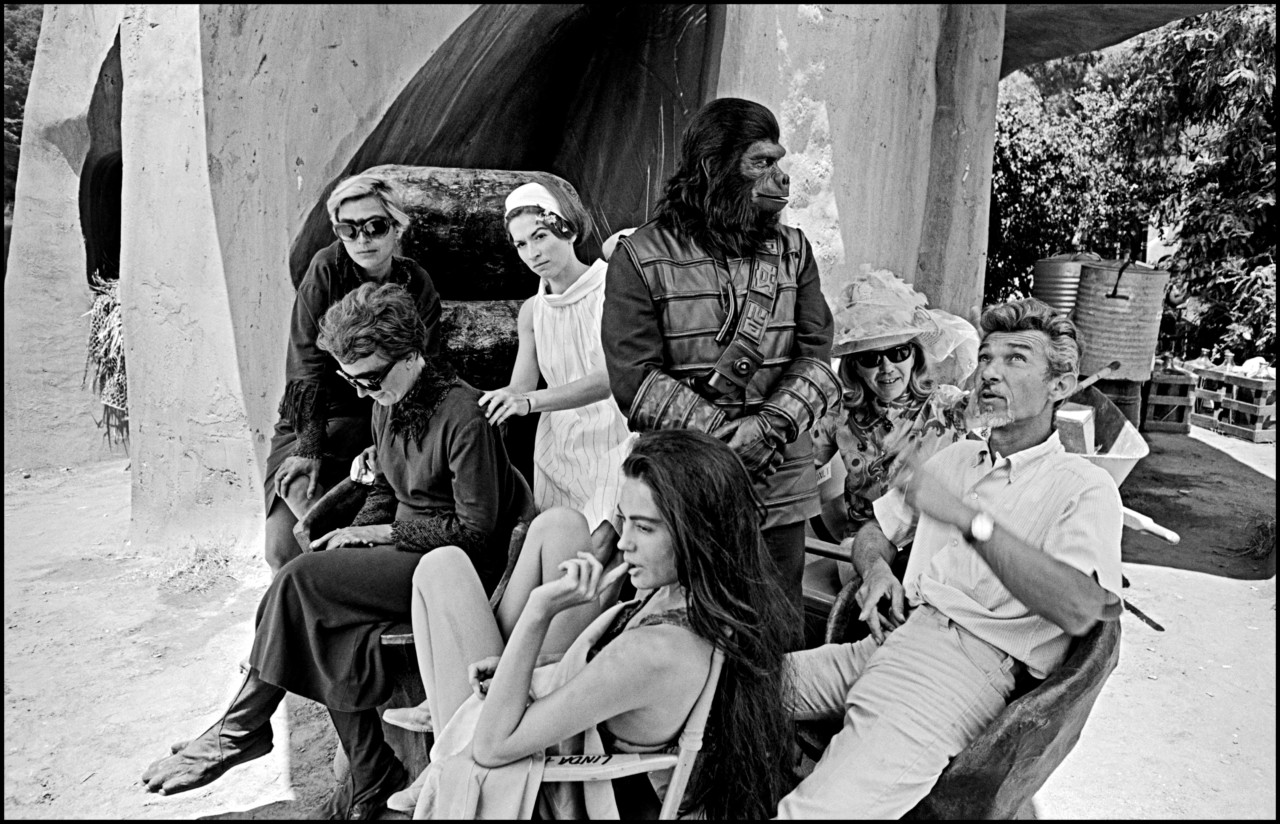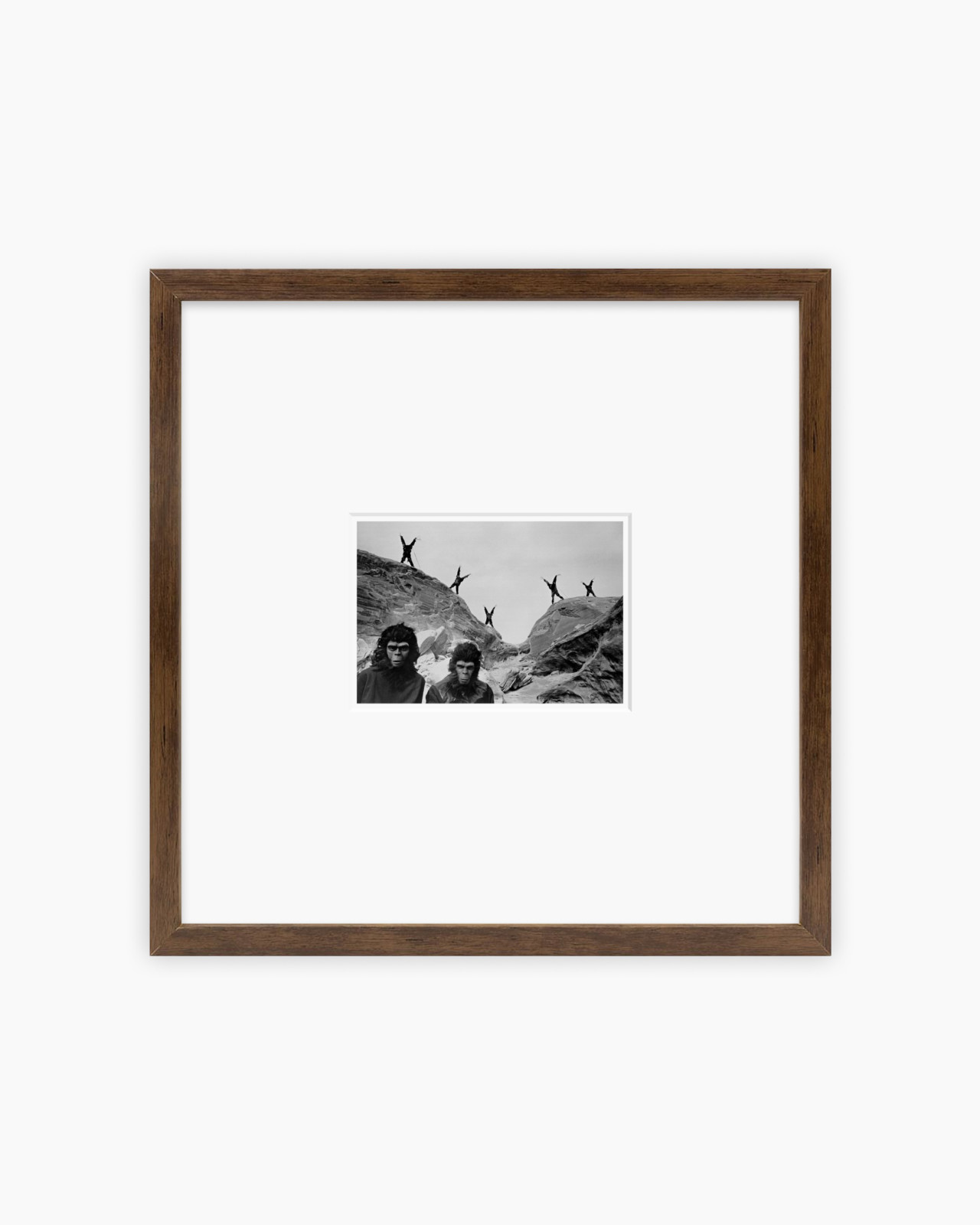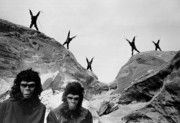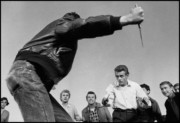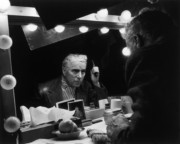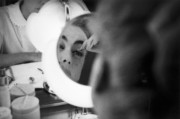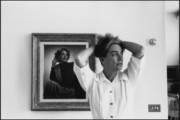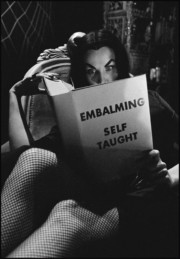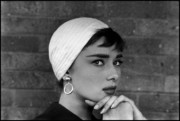The Story Behind the Square Print: Planet of the Apes
Dennis Stock captured surreal and offbeat scenes in-between takes during the making of the 1968 sci-fi blockbuster
Magnum photographers have, over more than seven decades, captured pivotal moments in popular culture as much as historic events and societal sea changes. Working behind the scenes on sets of many classic films, they have captured not only iconic stars at various stages of their careers, but also documented the changing nature of cinema and film production. Sets, equipment, and special effects that once seemed futuristic are, with the passing of time, rendered disarmingly romantic.
Here, we look at the images shot by Dennis Stock behind-the-scenes during the filming of Planet of the Apes, the 1968 sci-fi film that posed questions about the nature of humanity through its dramatic storyline and ambitious makeup and prosthetics.
In 1967, Magnum photographer Dennis Stock visited the California set of the first Planet of the Apes movie, famous for its twist ending with the decayed Statue of Liberty appearing from the sands like a lost relic. Weaving between director Franklin J. Schaffner and lead actors Charlton Heston and Linda Harrison, Stock’s camera caught a behind-the-scenes glimpse of the blockbuster and its cast, outfitted in John Chambers’ groundbreaking prosthetic makeup. Actors were said to have spent three hours having their faces fixed up using innovative techniques created by the celebrated make-up artist. Chambers, who won an honorary Academy Award for his work on the film, was also notable for creating the pointed ears worn by Spock in the television series Star Trek.
In-between takes, the cast of Planet of the Apes headed to refrigerated trailers in order to preserve their make-up. They were even given cigarette holders so they could smoke with their ape faces still attached. Intriguingly, Charlton Heston once noted that the actors were so immersed in their ape roles that they “self-segregated” off camera, in accordance with the species they were playing in the film.
Peering behind the prosthetic artifice of the film, which was also shot on locations in Utah, Arizona, and on the Malibu coast, Stock snaps a half-finished ape next to a wig and a prosthetic face in a box. Another ape observes a giant studio light atop a ladder. Charlton Heston peers at a script with the director. There’s a sense of intrigue, of this-is-how-the-magic-happens.
"There’s a sense of intrigue, of this-is-how-the-magic-happens."
-
There’s boredom, too, as Stock captures the downtime between takes. Actors patiently wait around in the sweaty California heat, feeling the weight of their furry costumes. They have fun with their costumes on the high street, with Stock’s images highlighting the absurdity of an ape sitting at a bus stop – an image that also featured in the photographer’s classic photobook California Trip.
Released in 1968 and dubbed “the year’s most unusual and important picture”, Planet of the Apes was notable for its epic sets, and above all, the special effects work that went into it. It took up to 80 make-up artists, hair stylists and wardrobe staff to realize the scenes in which 200 apes appeared. It’s said that the production of several other Hollywood movies were delayed because all the talent was tied up on Planet of the Apes.
In the late 70s, Chambers was contracted to work for the CIA making disguises and was involved in the 1980 operation which resulted in the rescue of six American diplomats held hostage in Iran – events which were later portrayed in the Oscar-winning 2012 movie, Argo.
Planet of the Apes’ success both with critics and audiences was survived by its successive franchise, which included four sequel movies, as well as by a 2001 Tim Burton remake, an ongoing reboot series, and in various incarnations on TV, comics and merchandising.
An image from this series is available as a limited-edition, estate-stamped print for one week only as part of the Magnum Square Print Sale, from Monday, April 21 to Sunday, April 27.
Shop the Sale here


